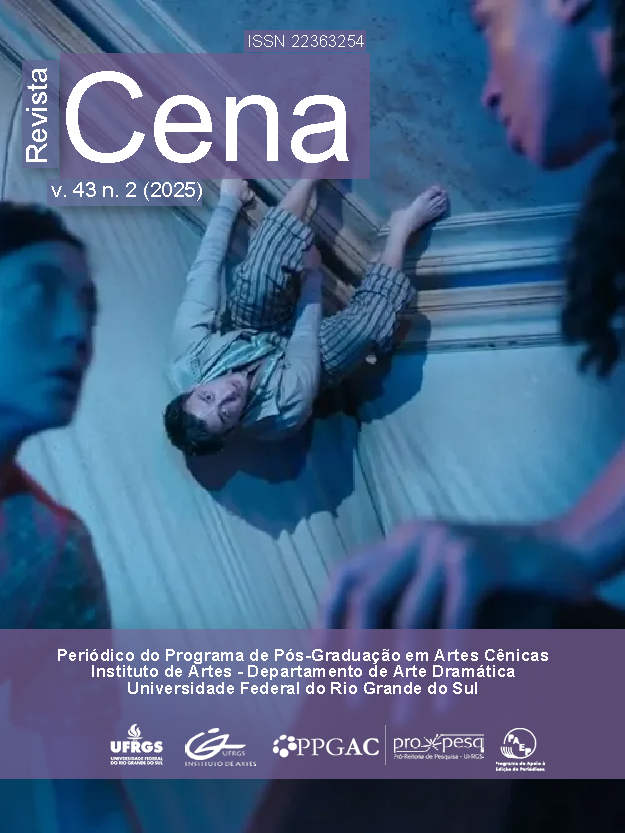Vereda da Salvação: Intersections between race, gender and belief in the dramaturgy of Jorge Andrade
DOI:
https://doi.org/10.22456/2236-3254.146232Abstract
In 1955, the city of Malacacheta, Minas Gerais, witnessed an episode of religious fanaticism that resulted in the brutal murder of four children. A decade later, Jorge Andrade, a writer from São Paulo, dramatizes the case in a work of warning and caution. Vereda da Salvação (1965) remains relevant and timely in discussions of religious fanaticism. However, this paper intends to analyze how the playwright portrays the intersections of gender, race, and belief. Unfortunately, the author makes discursive choices that omit the racial identity of the characters, and he also reduces the plot of the female protagonists to an orbiting role around the men's narratives. In his work, Andrade prompts us to reflect on the dangers of a religious discourse grounded in the promise of a new land, aimed at people who have never had a piece of land to call their own. Hope becomes the villain in this process, to the point that reality loses its place, making way for fantasy and a collective delusion of ascension to the heavens. Despite offering a strong critique of the catechizing stance of some neo-Pentecostal doctrines, the author seems to portray the conflict solely through the lens of class struggle, neglecting the intersections of race and gender present both in the dramaturgy and in the event in Minas Gerais.
Downloads
Downloads
Published
How to Cite
Issue
Section
License
Authors retain the copyright and grant the journal the right to first publication, with the work simultaneously licensed under the Creative Commons Attribution License that allows the sharing of the work with acknowledgment of authorship and initial publication in this journal.
Articles are open access distributed under the terms of a Creative Commons Attribution 4.0 International License. Available at: <http: // creative commons.org/licenses/by/4.0>.
Authors can publish their work online in institutional / disciplinary repositories or on their own websites.


